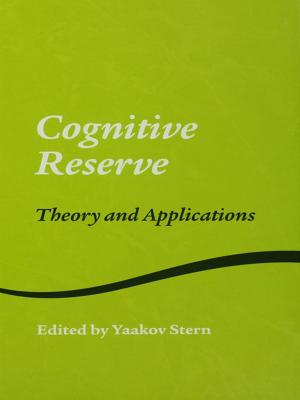The Wondering Brain
Thinking about Religion With and Beyond Cognitive Neuroscience
Nonfiction, Religion & Spirituality| Author: | Kelly Bulkeley | ISBN: | 9781135949426 |
| Publisher: | Taylor and Francis | Publication: | July 8, 2005 |
| Imprint: | Routledge | Language: | English |
| Author: | Kelly Bulkeley |
| ISBN: | 9781135949426 |
| Publisher: | Taylor and Francis |
| Publication: | July 8, 2005 |
| Imprint: | Routledge |
| Language: | English |
The explosion of new research in cognitive neuroscience has revealed fascinating dimensions of the human brain/mind system. But even as it brings us closer to understanding how the mind works, science is producing more, and perhaps even larger questions. What further powers and abilities are latent within us? The Wondering Brain argues that the profound questions raised by cognitive neuroscience may best be answered through a dialogue with religion. Kelly Bulkeley argues that cognitive neuroscience, seen in the light of religion, is a unique source of insight into the natural groundings of faith, morality, love, ecstasy, and revelation. And religion, seen in the light of cognitive neuroscience, is a powerful cultural system whose most valuable function is to stretch and expand our basic cognitive capacities. Kelly Bulkeley's deep engagement with both religious thinking and the workings of cognitive neuroscience makes for a constantly surprising book, full of stories that catch the reader in the unexpected place between two supposedly irreconcilable ways of being in the world.
The explosion of new research in cognitive neuroscience has revealed fascinating dimensions of the human brain/mind system. But even as it brings us closer to understanding how the mind works, science is producing more, and perhaps even larger questions. What further powers and abilities are latent within us? The Wondering Brain argues that the profound questions raised by cognitive neuroscience may best be answered through a dialogue with religion. Kelly Bulkeley argues that cognitive neuroscience, seen in the light of religion, is a unique source of insight into the natural groundings of faith, morality, love, ecstasy, and revelation. And religion, seen in the light of cognitive neuroscience, is a powerful cultural system whose most valuable function is to stretch and expand our basic cognitive capacities. Kelly Bulkeley's deep engagement with both religious thinking and the workings of cognitive neuroscience makes for a constantly surprising book, full of stories that catch the reader in the unexpected place between two supposedly irreconcilable ways of being in the world.















